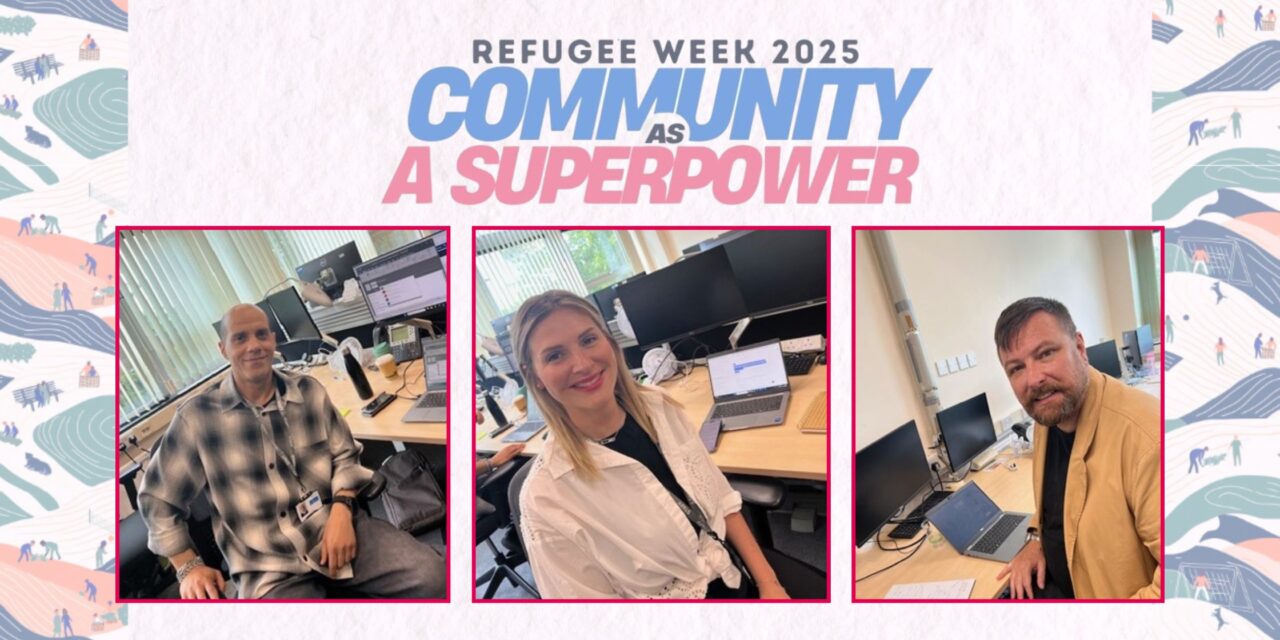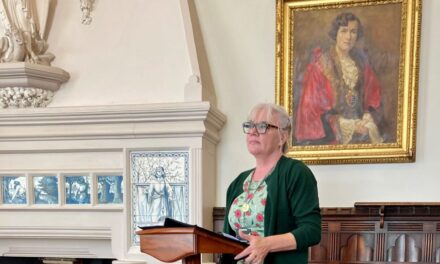Community as a Superpower will mean different things to each of us. It might make you think of your network of friends and family. For others it might mean people with a shared goal, situation or nationality.
This year ‘Community as a Superpower’ is the theme of Refugee Week, which is held between 16 to 22 June this year.
In this instance, the theme is demonstrated in simple acts of shared generosity and kindness that can have a huge impact within the communities we live. Refugee Week brings together communities to connect beyond labels.
For our second feature for Refugee Week, YES spoke with people supporting migrants and the migrant volunteers giving back to their new community to understand what ‘Community as a Superpower’ means to them.
You can read the first part of the series called Celebrate with kindness this Refugee Week on our website.
Why Support matters
Members of East Sussex County Council’s Migrant Support Team tell us what ‘Community as a Superpower’ means to them.
Issam
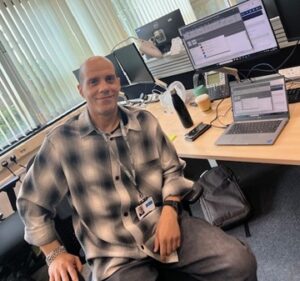
‘To me, ‘Community as a Superpower’ means seeing people who are often unheard feel proud, confident, and inspired. I saw this at many Muslim community events where people came together, celebrated their identity, and felt empowered. It shows how a united community can bring people out of isolation and darkness into the light and socialising.
‘Being part of a community that shares my background and faith gives me strength. Even though I’ve grown up in the West, being around others who understand my identity gives me confidence. ‘Community as a Superpower’ means I can be myself without losing who I am, and I also learn and grow by helping others.’
Ekaterina
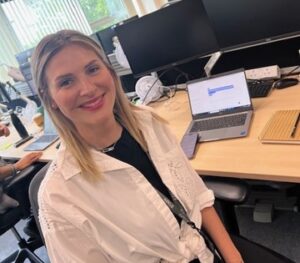
‘When I first arrived in a new country, I felt lost and alone. I couldn’t speak to anyone in my language. But when I found a group through Facebook and met others like me, I felt hopeful and empowered. That support reminded me that things would get better.
‘That’s what ‘Community as a Superpower’ means — it gives you hope when you need it most; it means coming together to lift each other up. When people support, share, and care for one another, especially during tough times, we create real, lasting change. Together, we are stronger.
Nick
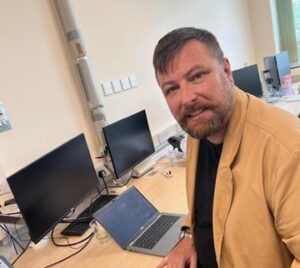
‘For me, ‘Community as a Superpower’ means knowing you’re not alone, that people will lift you up in hard times.
When I was diagnosed with an illness, I turned to my family, friends, and even online forums for support. Their help gave me the strength to face what I was going through.
‘I see communities like nesting dolls that fit inside each other (known as Matrioshka) — starting small with one person, then growing through family, friends, and wider society. ‘Community as a Superpower’ is about how our connections build up layer by layer, giving us strength and meaning. Each connection makes us stronger together.
‘If we treat the people close to us with kindness and respect, and extend that outward, we create powerful change. ‘Community as a Superpower’ means using love, respect, and care to connect across neighbourhoods, cities, and even the world.’
Welcoming migrant communities
Our county has a proud history of welcoming people from different backgrounds into our community. This spirit of generosity is highlighted by voluntary-sector organisations across East Sussex. These include:
There’s also further information about groups offering support for different migrant groups on our website.
Resilience in Action: Migrants Giving Back
The strength and generosity of migrants is perhaps best seen in the ways they give back to the very communities that welcomed them. This includes contributing to the local economy, and contributing their skills and expertise in the workforce.
This is true of volunteers from Sanctuary, Eastbourne. The following are typical ways migrants help at the organisation.
- Mohammad, who fled Afghanistan, volunteers as an interpreter (he knows seven languages) and helps others understand bills, benefits, and official letters
- Helen, from Iran, provided translation services for Farsi speakers and connected people to English lessons and mental health support. She’s supported an after-school art club for refugee children, and has earned a scholarship to study medicine at Plymouth University
- Jordan, from the Democratic Republic of the Congo, volunteered in the kitchen and coordinated activities. He’s helped restore computers for use in schools and by low-income families
- Nataliia, a teacher from Ukraine, volunteers at the Conquest Hospital. Her Ukrainian and Russian language skills make her an asset in schools welcoming children from those regions.
If you would like to know more about support for refugees in East Sussex please visit our webpages or those of our partners through the support for refugees webpage on the East Sussex County Council website.
